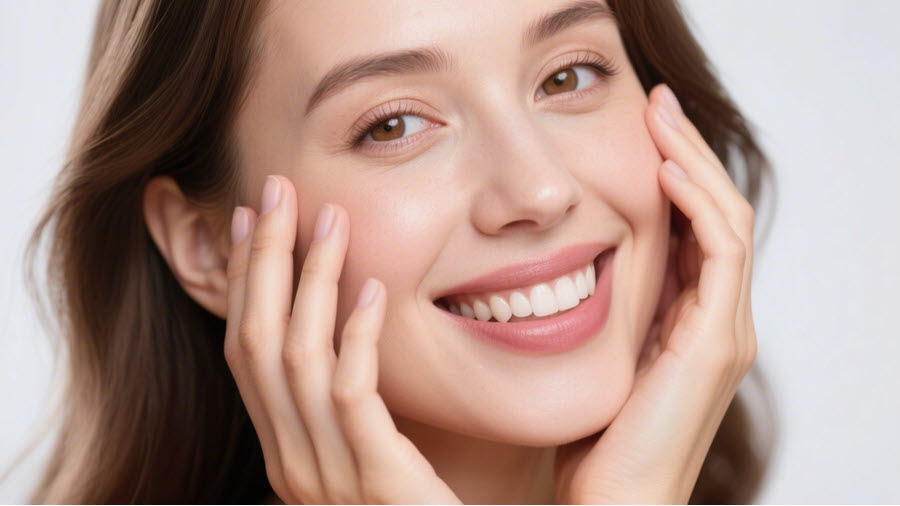Aging is one of those unavoidable things in life—like taxes and the occasional embarrassing photo from the past popping up. And when it comes to your skin, time eventually leaves its mark. Some changes are written in your DNA. This is what doctors call intrinsic aging—the natural process that leads to thinner skin, fine lines, dryness, and a loss of that plump, youthful glow.
But here’s the good news: not all skin aging is out of your control. A big part of how your skin looks as you get older depends on your environment and daily habits. This is called extrinsic aging, and it’s the kind you can influence.
Dermatologists say there are clear, proven ways to slow down premature skin aging. Some are as simple as wearing a hat. Others require looking a little more closely at your lifestyle. All of them can help your skin stay healthier, smoother, and more vibrant for longer.
First up: sun protection. It’s the single most important thing you can do for your skin. Every time you go outside, even for a few minutes, your skin is exposed to ultraviolet (UV) rays that damage collagen, speed up wrinkle formation, and increase your risk of age spots and skin cancer. Whether it’s sunny or cloudy, summer or winter, you should be protecting your skin. That means using a broad-spectrum sunscreen with SPF 30 or higher every single day—ideally one that’s also water-resistant. Clothes can help too: long sleeves, wide-brimmed hats, and sunglasses with UV protection go a long way, especially if they come with a UPF (ultraviolet protection factor) label.
If you like that golden glow, skip the sunbathing. Tanning, whether outdoors or in a tanning bed, damages your skin every time. Instead, reach for a self-tanner or bronzing lotion. It gives the same sunkissed look without the deep-layer harm.
Smoking is another big culprit. Cigarette smoke floods your body with free radicals and reduces blood flow to the skin, leading to a dull, uneven complexion, early wrinkles, and slower healing. Quitting has visible benefits—not just for your lungs, but for your face.
Your expressions matter, too. Repeated squinting, frowning, or puckering can eventually carve lines into your skin. Over time, these tiny muscle movements create grooves that stop bouncing back. Wearing sunglasses can help protect the delicate skin around your eyes and reduce squint lines.
What you eat also shows up on your face. A diet rich in colorful fruits and vegetables supports your skin with antioxidants and anti-inflammatory compounds. On the flip side, eating too many refined carbs and sugary foods may actually accelerate aging, according to some research. So think less white bread and soda, more berries and greens.
If you drink alcohol, cutting back can help. Alcohol dehydrates the skin and impairs your body’s ability to repair itself. Over time, this can leave your skin looking older than it needs to.
Exercise is another secret weapon. Even moderate movement a few days a week improves circulation, which helps deliver nutrients to your skin. It also boosts your immune system, which can contribute to a healthier, more radiant look.
When it comes to skin care, gentle is the way to go. Harsh scrubbing or overly aggressive exfoliation can cause tiny injuries that add up over time, leading to irritation and faster aging. Stick to mild cleansers and soft washcloths or your fingertips, and avoid anything that leaves your skin red or stinging.
Always wash your face at the end of the day to clear off dirt, sweat, and pollutants. And if you’ve been sweating heavily—especially under a hat or helmet—it’s best to cleanse as soon as possible to avoid breakouts and irritation.
Moisturizing every day helps trap water in the skin, which not only feels better but actually makes your skin look plumper and smoother. A good moisturizer doesn’t have to be fancy—just something that works for your skin type and that you’ll actually use.
Lastly, avoid skin products that sting or burn unless they’ve been prescribed by a dermatologist. That burning sensation is a sign of irritation, which can make skin look older, not younger.
The best part? It’s never too late to make a difference. Even if you already see signs of premature aging, healthy habits now can improve your skin’s appearance and slow down future damage. Quitting smoking, eating better, exercising more, and wearing sunscreen won’t turn back the clock—but they can definitely help you look and feel your best as time goes on.



